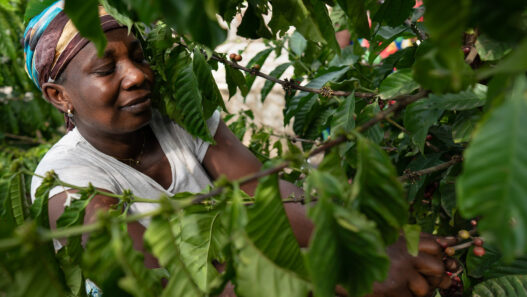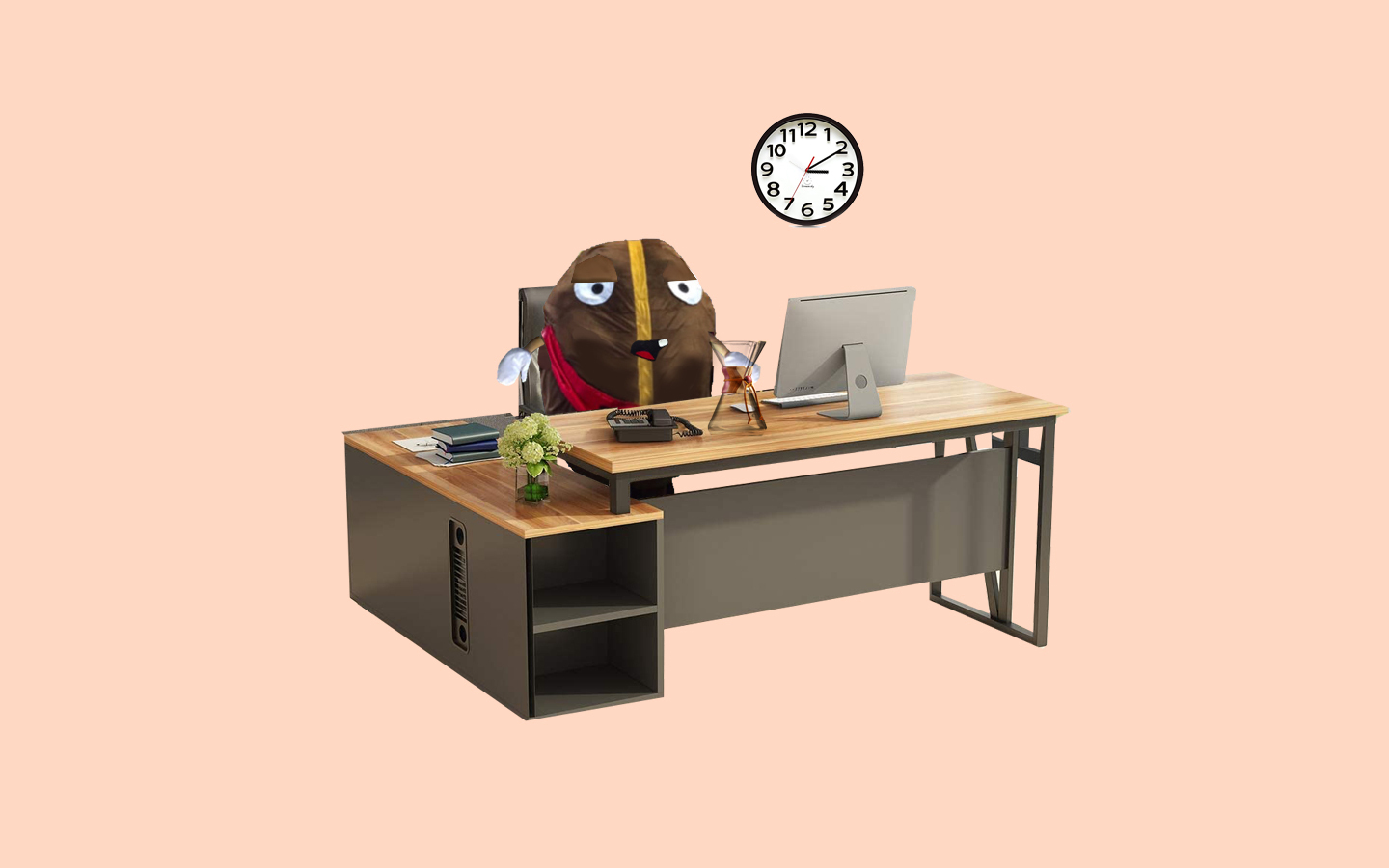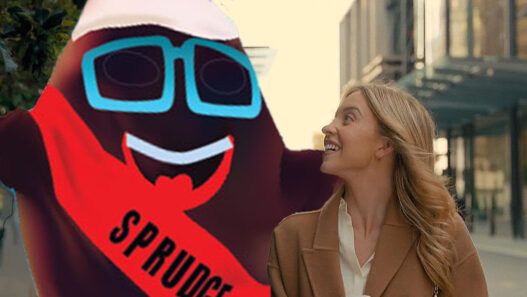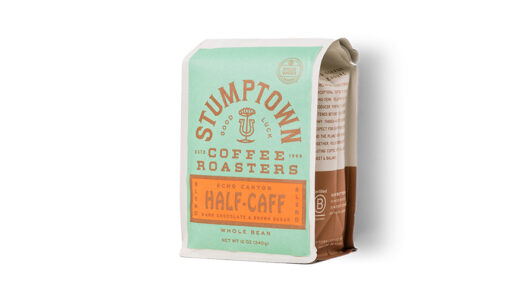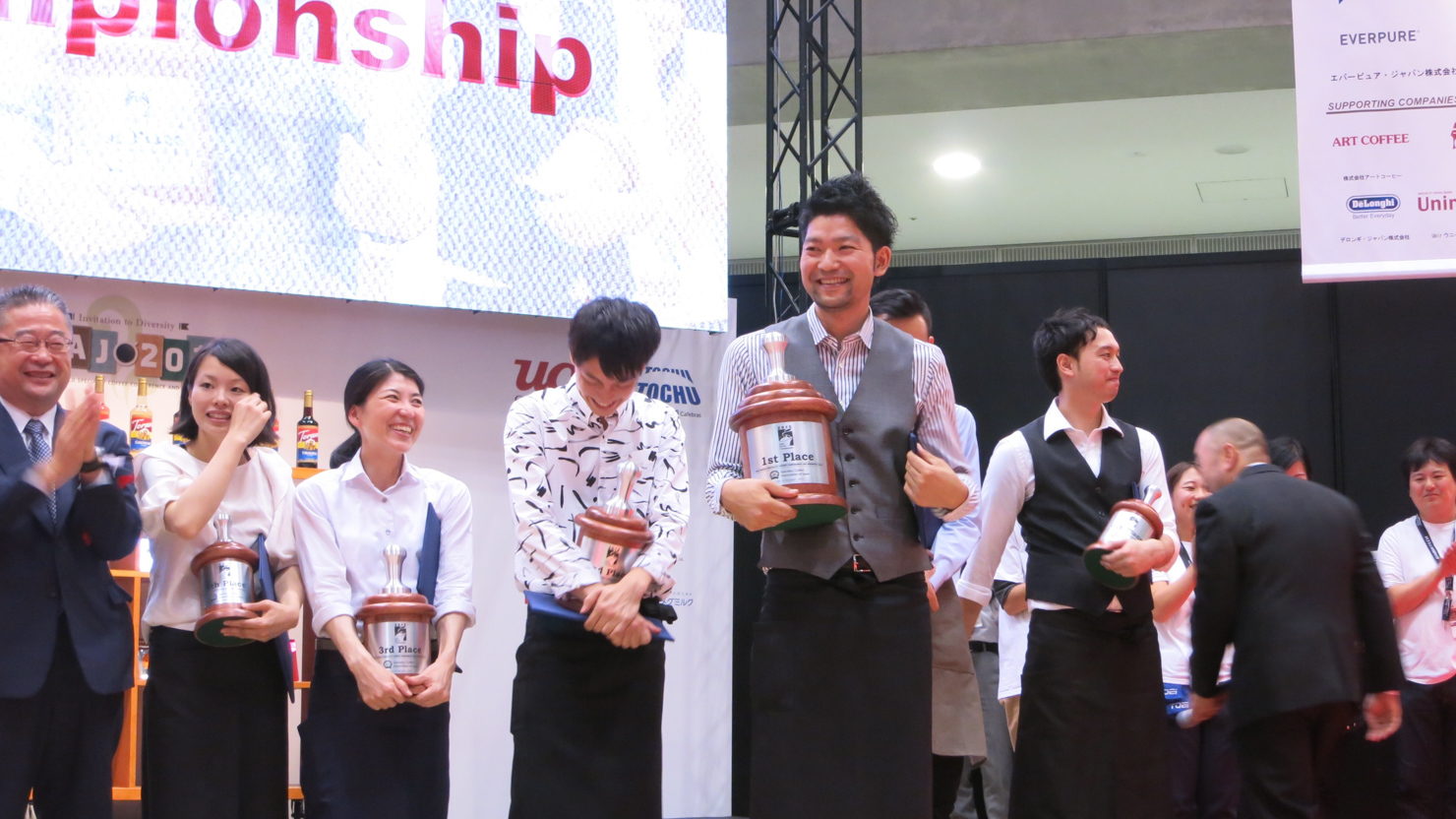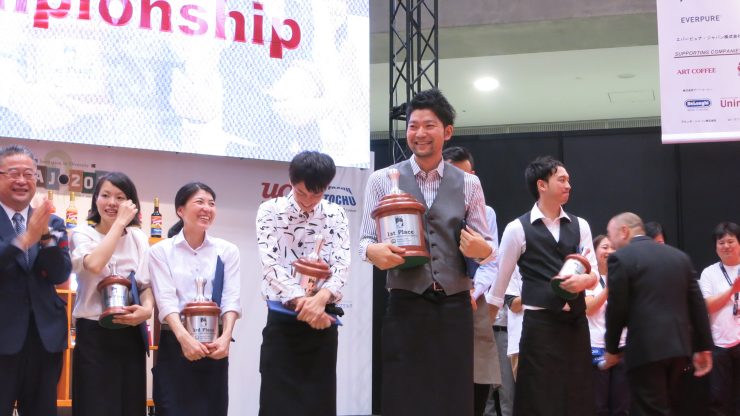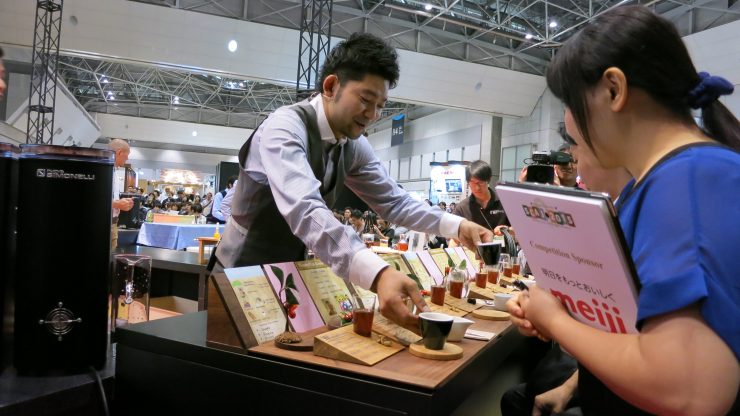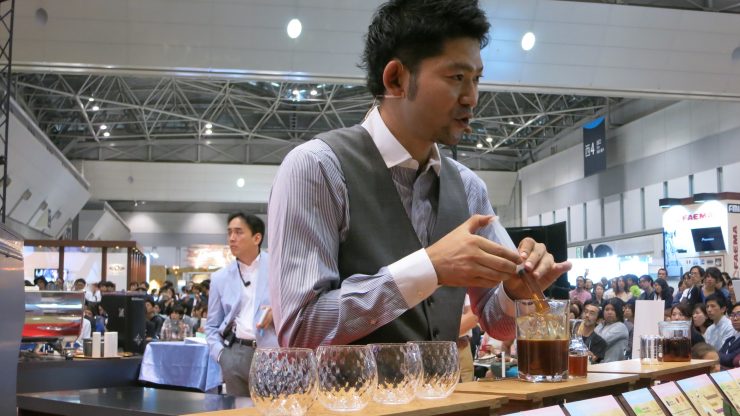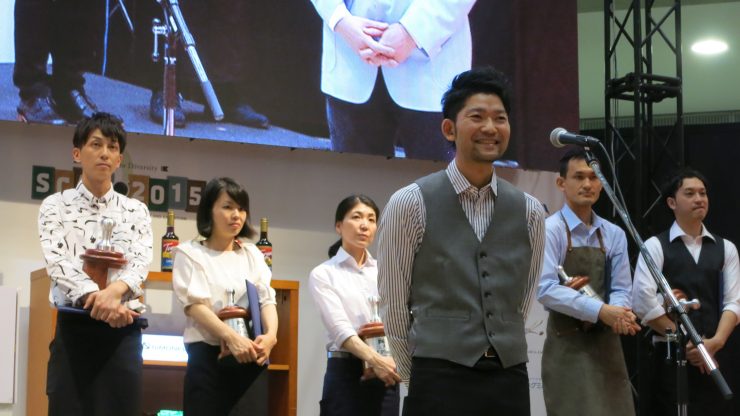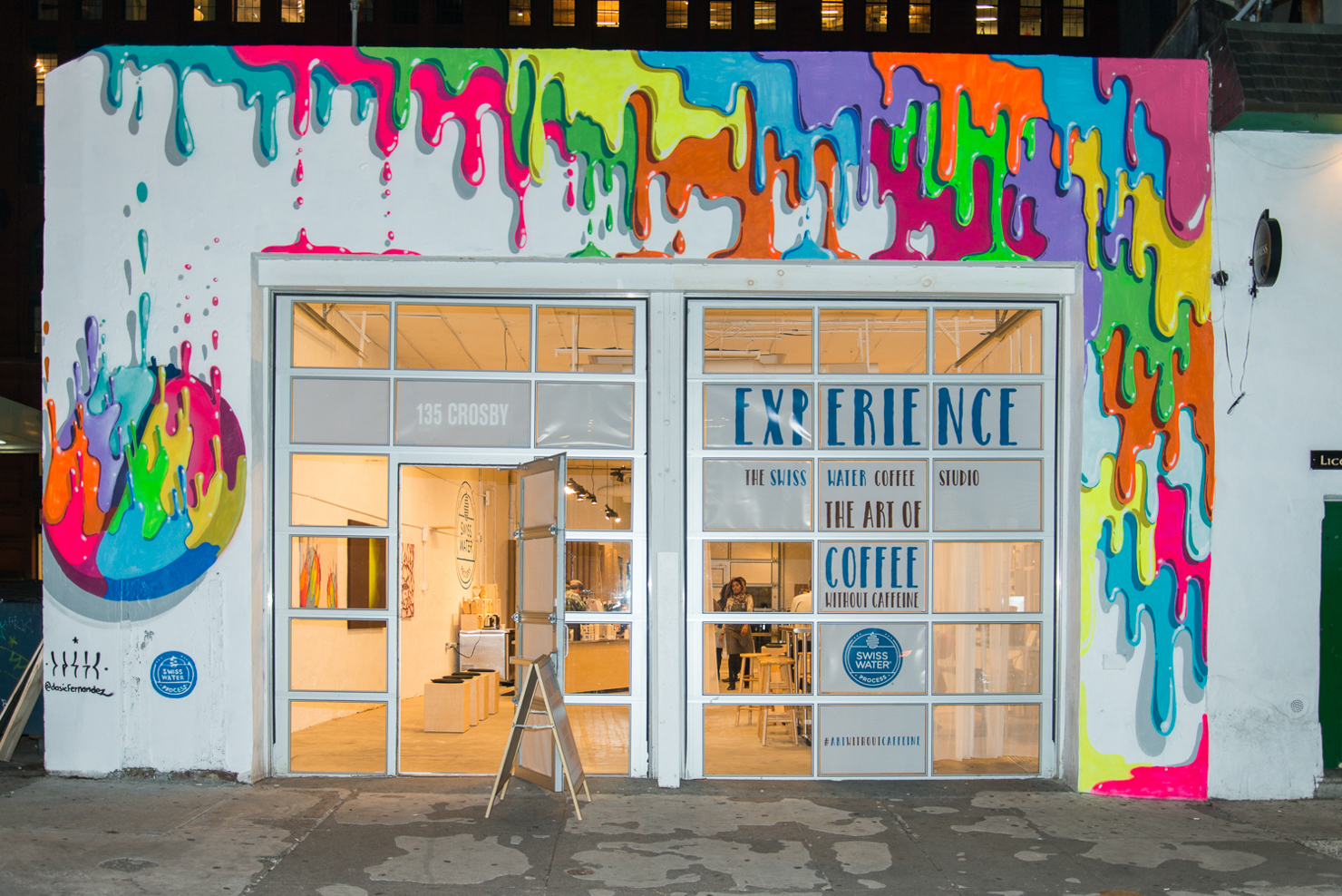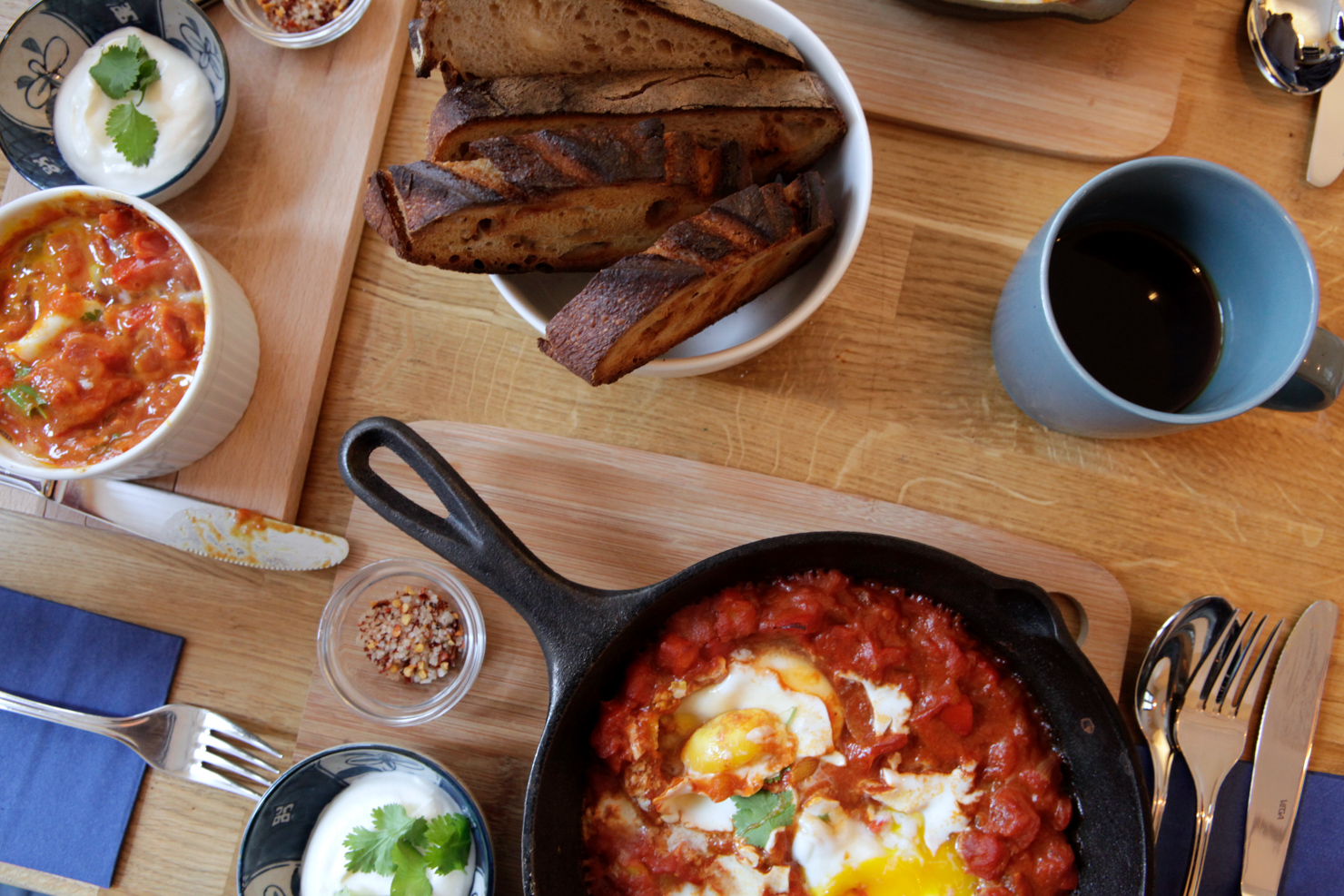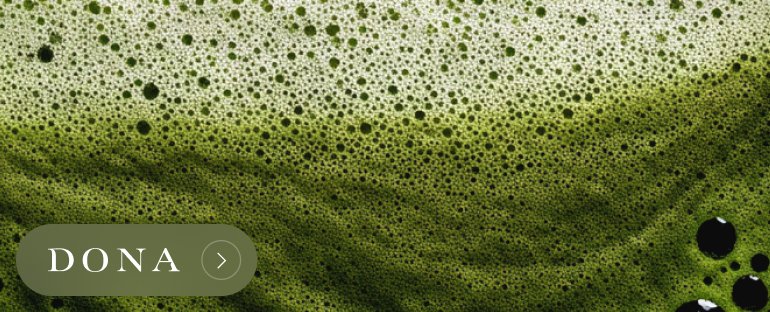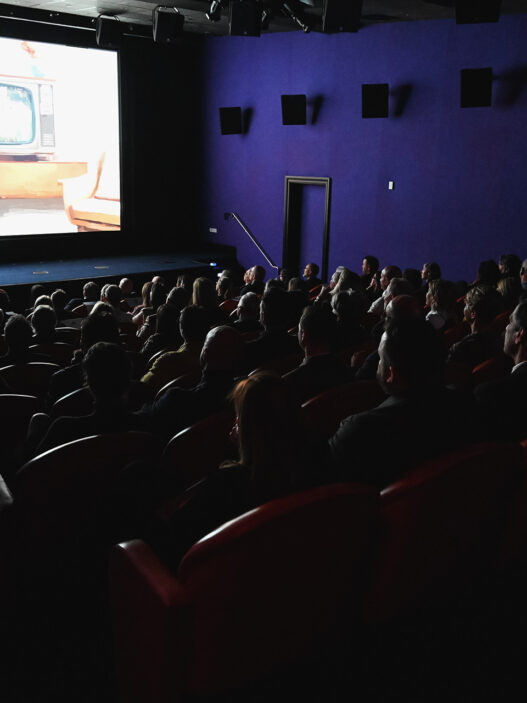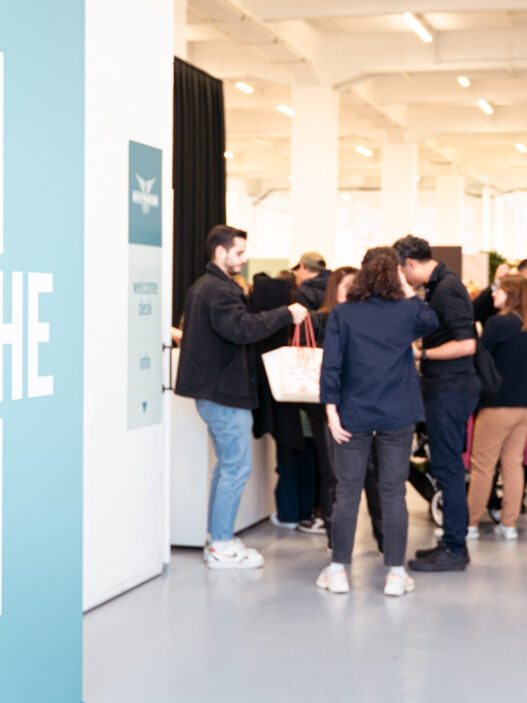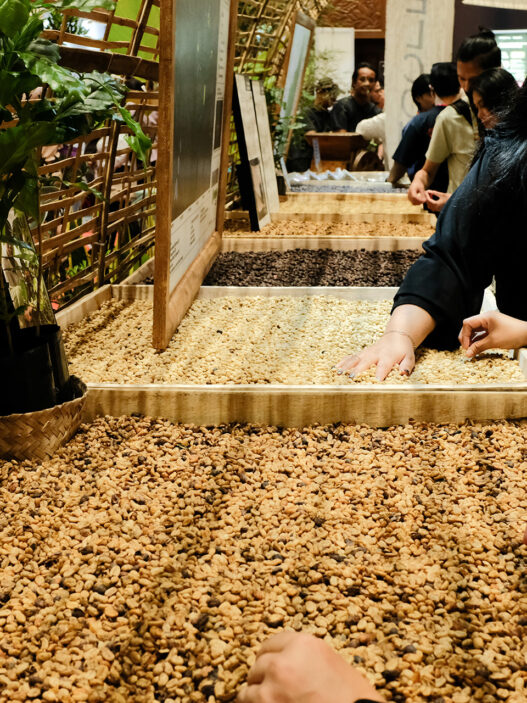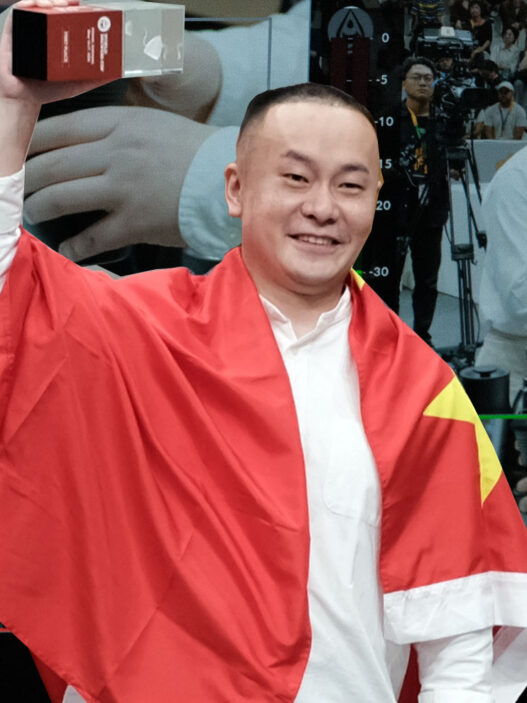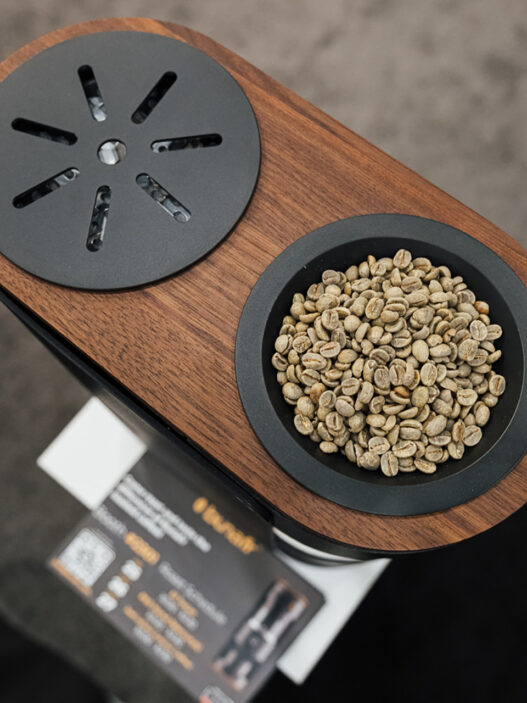For competition baristas around the globe, the long road to the World Barista Championship has begun, leading up to the event next June in Dublin, Ireland. On the road to Dublin we’ll be interviewing newly crowned national champions along the way. And at the recent Japan Barista Championship in Tokyo, Sprudge staff writer Hengtee Lim sat down with newly-crowned JBC winner Yoshikazu Iwase of Rec Coffee.
Congratulations on your win! How does it feel to have won for the second time?
Thank you very much. Victory in the Japan Barista Championship is very difficult. All of the baristas bring great coffee and give great presentations. I’m really happy I could win this year. At the World Barista Championship 2015 in Seattle, I came seventh, and I regret that result. So for me, this was both a very special and hard competition—filled with feelings of wanting to stand once more on the world stage.
What was your signature drink recipe?
I started with four shots of Ninety Plus Gesha Estates washed process espresso, which are cooled. After placing rock ice in a mixing glass, you add the espresso along with 1 gram of orange juice and 28 grams of gesha cherry honey syrup, and then stir.
(Gesha cherry honey syrup is slowly extracted from a mix of 10 grams of cascara in 50 grams of hot water, with 50 grams of Acacia honey.)
Can you tell us a little more about your signature drink? What was the inspiration, and what flavors did you aim to highlight?
The Ninety Plus Gesha Estates washed process coffee has a fantastic sense of terroir—there are both citric and floral notes in it. My signature drink began from a desire to add the flavor and sweetness found in the natural process coffee.
The cascara (gesha cherry) used in my signature drink is actually taken from the washed process during pulping. It adds a cherry pulp sweetness. By using this, it was also a chance for me to pay homage to the pickers, who give their best to pick the best.
Can you tell us about your choice of beans? When did you first encounter them? Why did you choose to use both the washed and natural processed coffee in your presentation?
The coffee I used was Ninety Plus Gesha Estates Panama. At this plantation, they’re testing a variety of production processes, and in this competition I used the washed and natural.
I first visited the plantation in December of 2014. I was captivated by it—by the picking, the processing, the blazing red coffee cherries, and the wonderful environment on the farm. The coffee made here is really elegant—they put their heart into their work.
As a washed coffee, you get an expression of the terroir of the plantation. As a natural coffee, you get an attractive flavor and sweetness, added to the taste of the washed.
My espresso and signature drink used the washed coffee—this was an opportunity to share that amazing quality and terroir. In my milk beverage, I used the natural, bringing attention to the attractive flavor inherent in the beans. By experiencing both processes, you come to experience and understand the charm in this plantation’s coffee.
Looking back at last year’s WBC, and thinking about a second run, how do you want to prepare for your next chance on the world stage?
Seventh place last year is a result I regret. The WBC is a truly wonderful competition, and the baristas that gather there all bring beautiful coffee stories with them. I feel that in order to win the competition, I have to start over, and become a beginner all over again. I want to bring a beautiful coffee and a presentation experience that shocks the world.
Hengtee Lim (@Hent03) is a Sprudge.com staff writer based in Tokyo. Read more Hengtee Lim on Sprudge.




